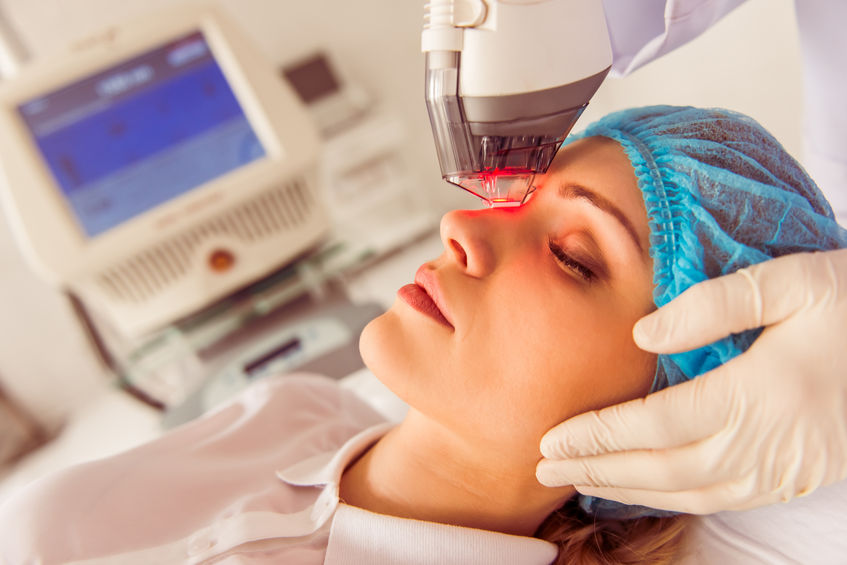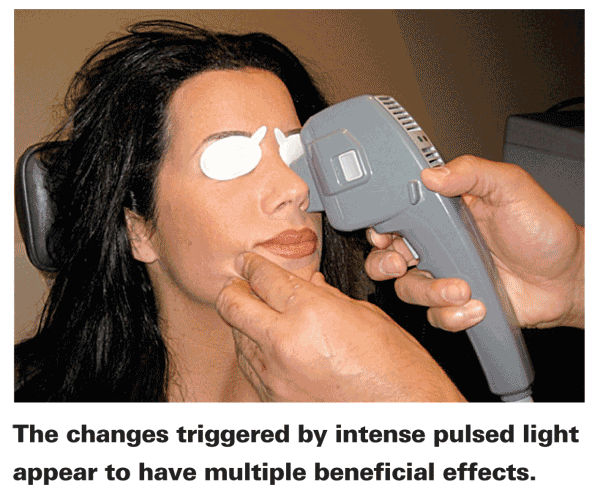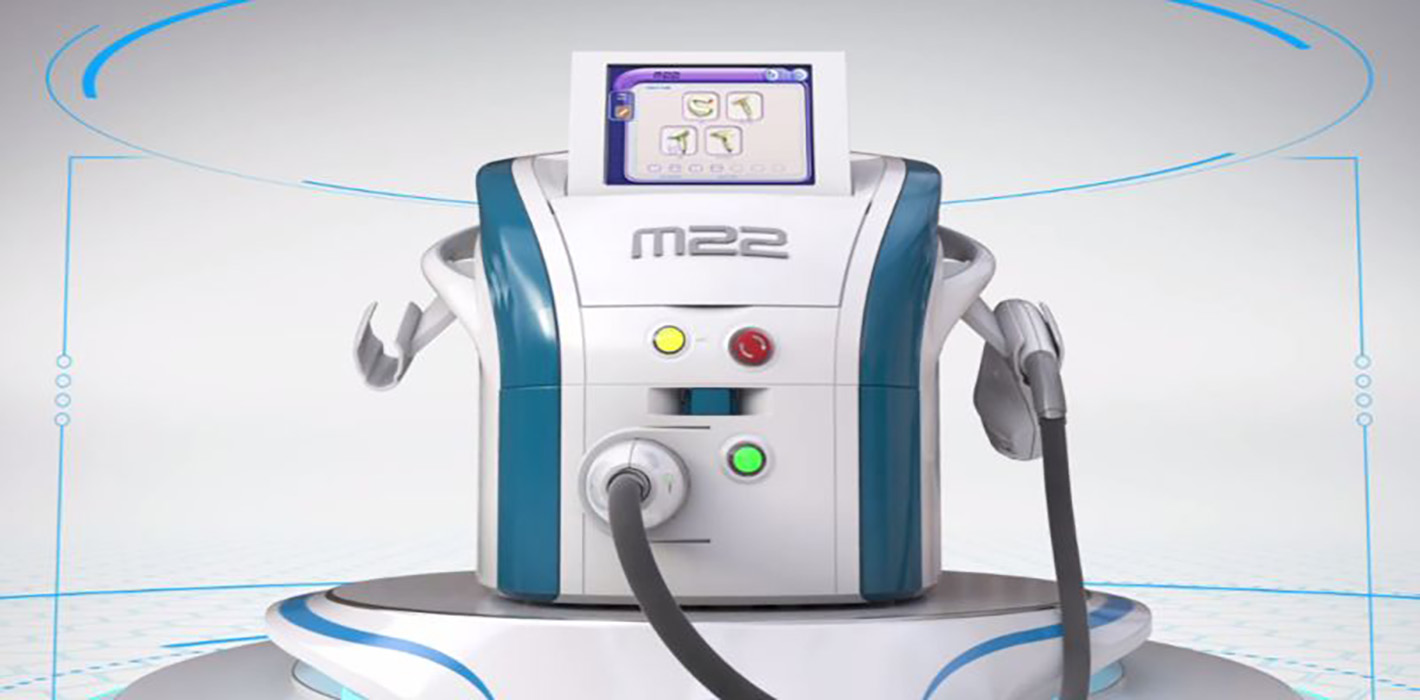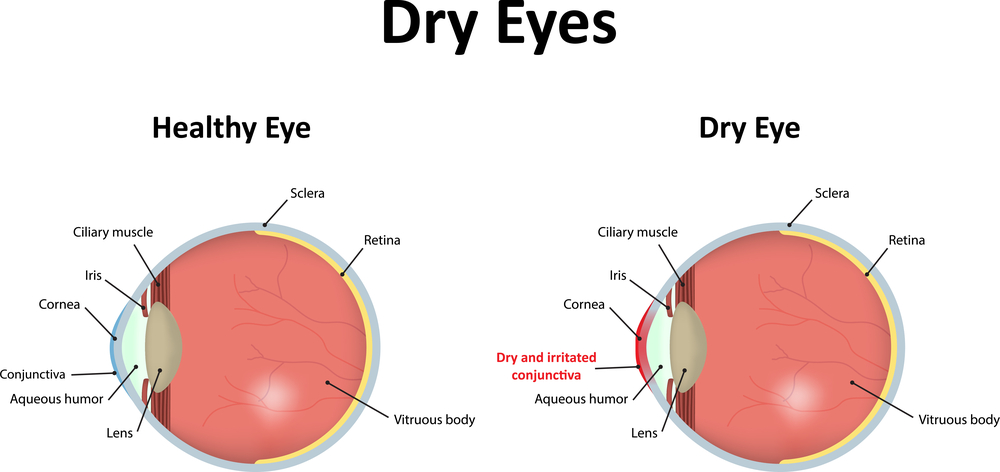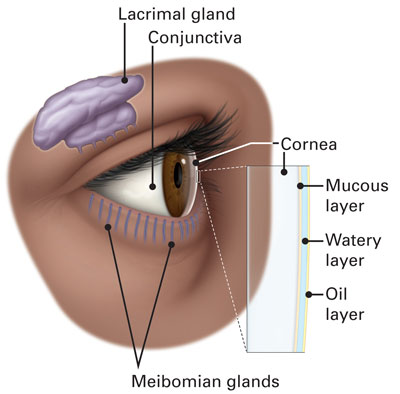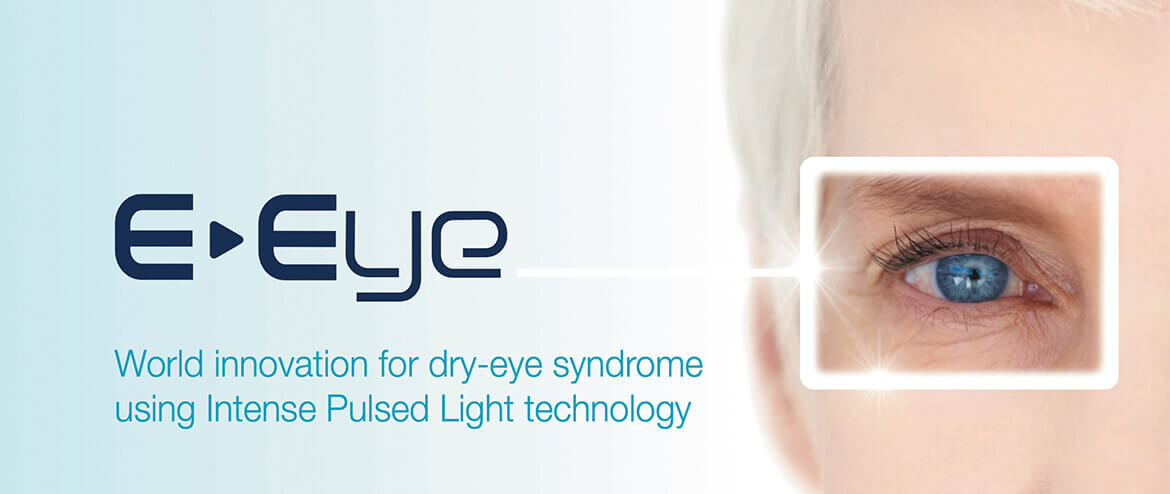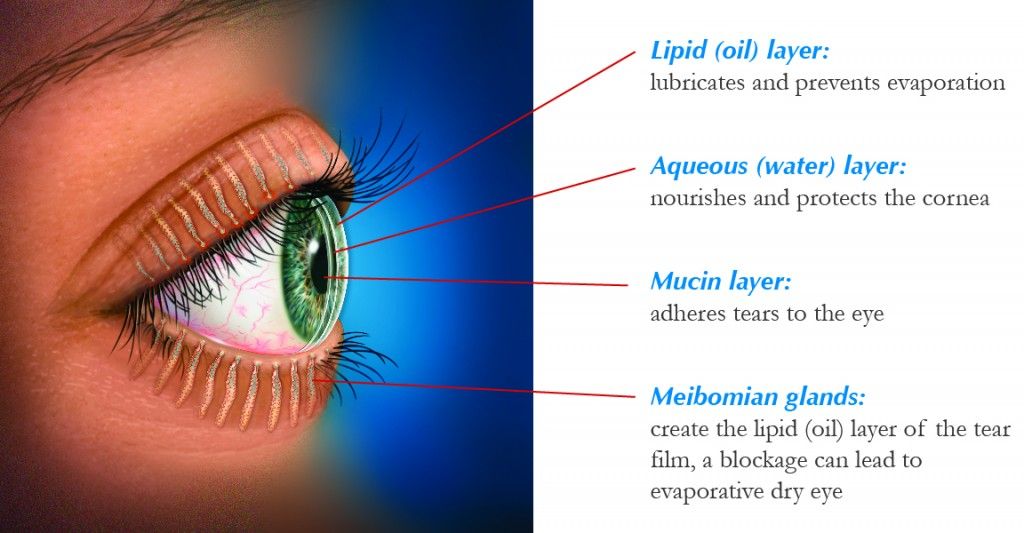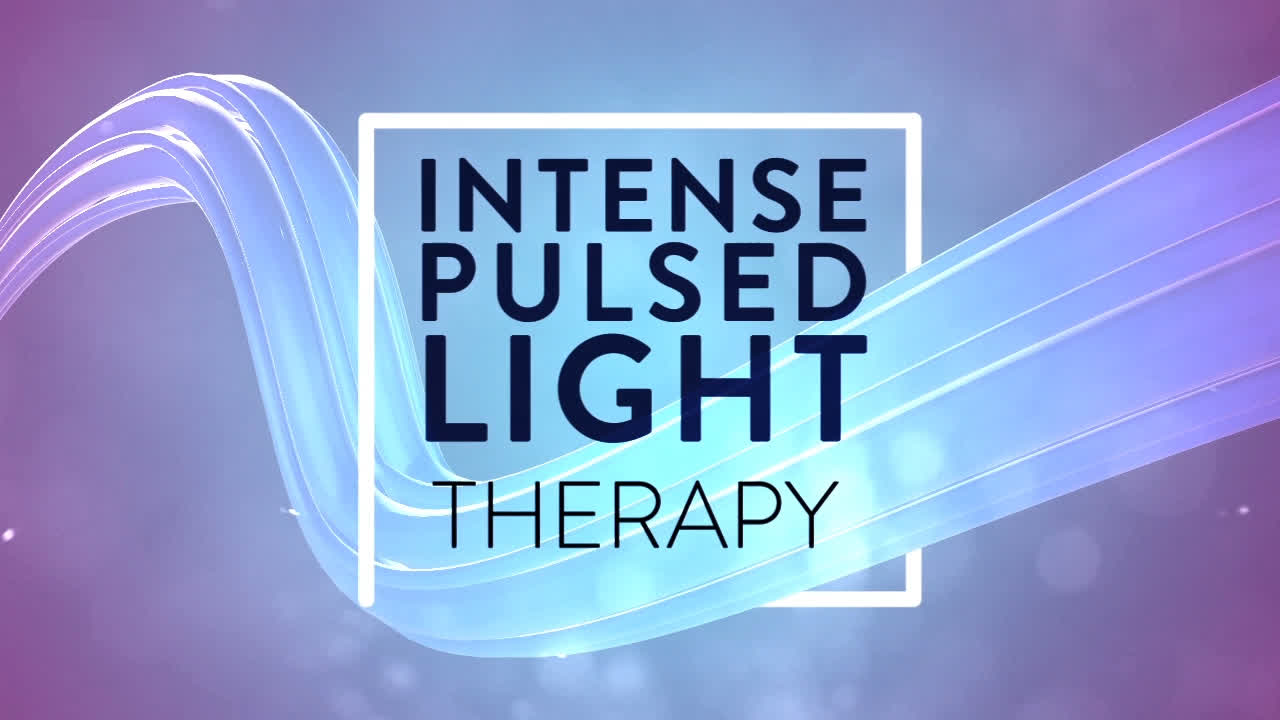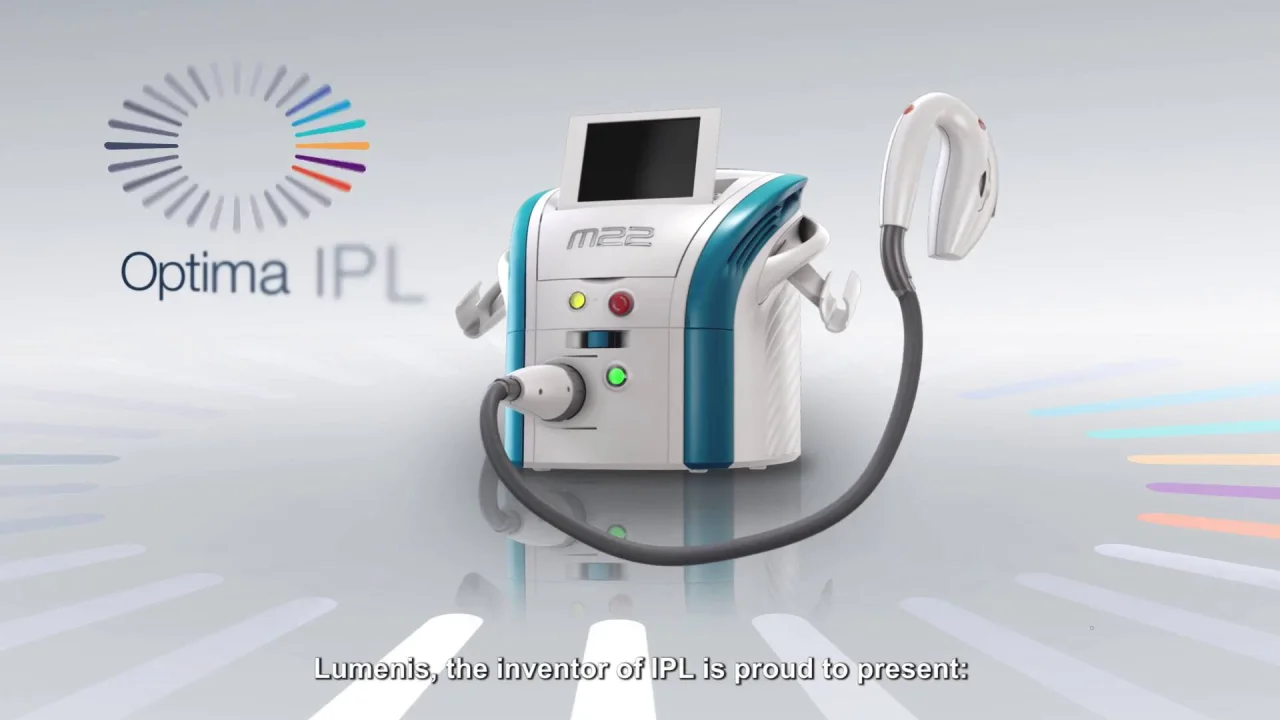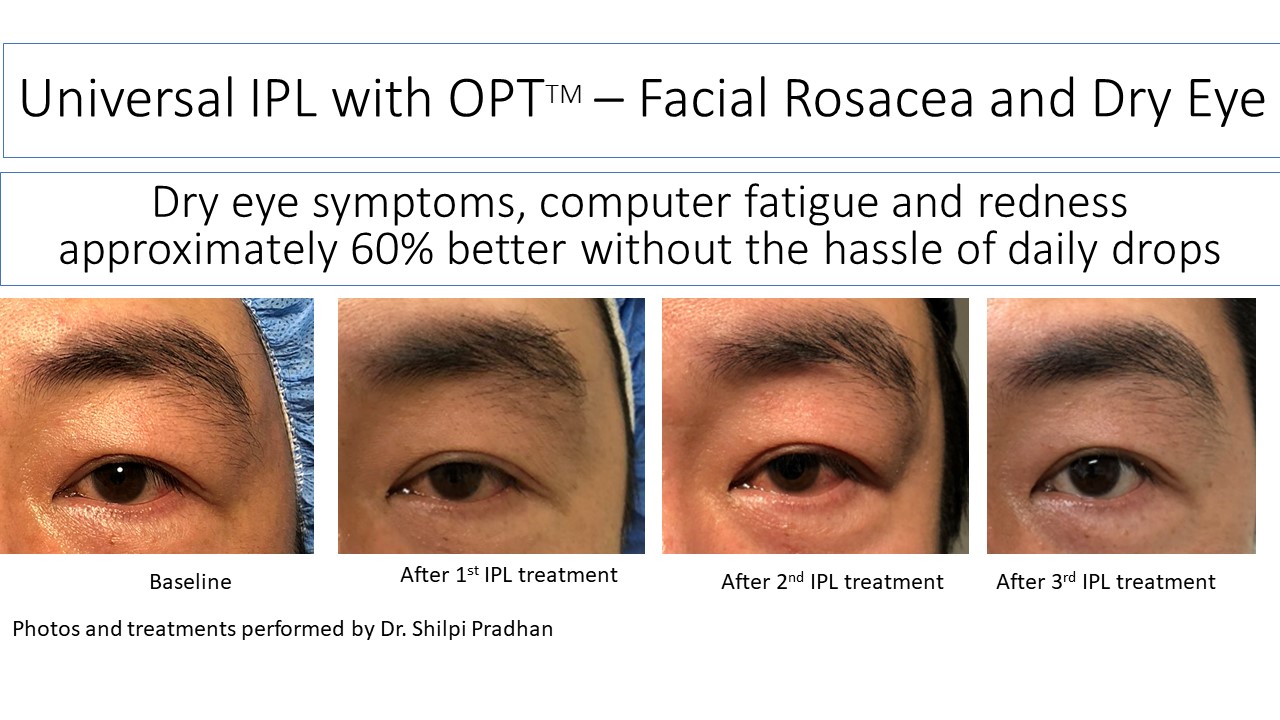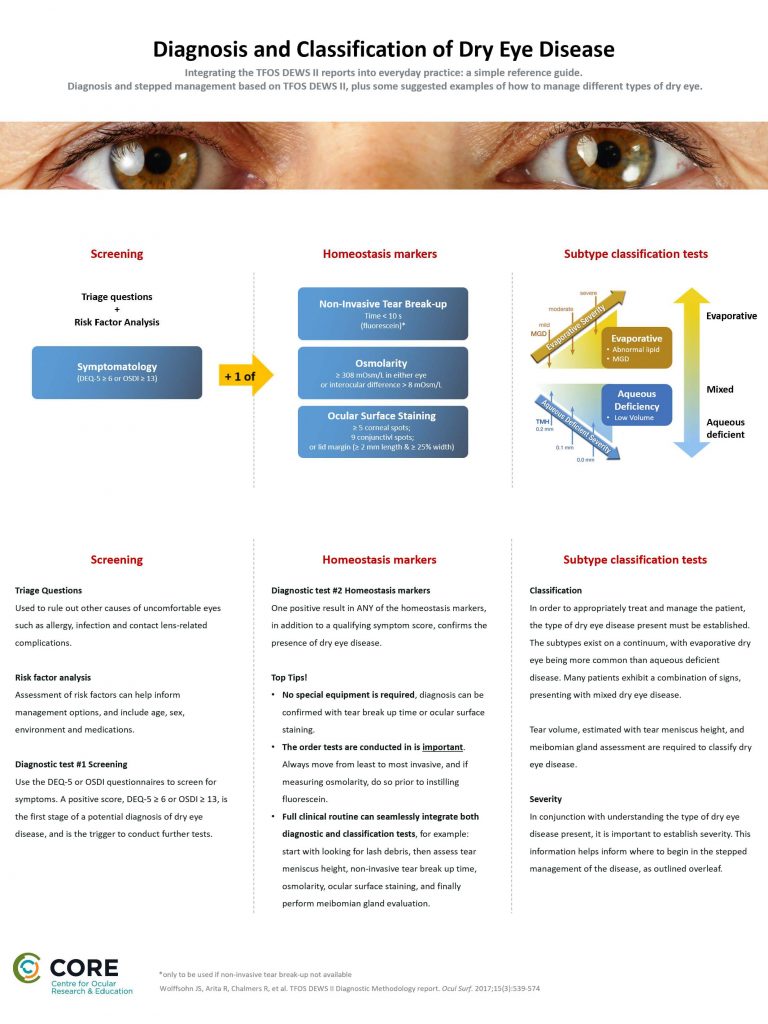Intense pulsed light ipl therapy which has been used extensively in dermatology to treat chronic skin conditions is a relatively new treatment in ophthalmology for patients with evaporative dry eye disease.
Intense pulsed light therapy for the treatment of evaporative dry eye disease.
Study results were published in cornea in 2016.
Intense pulsed light is a technology used by cosmetic and medical practitioners to perform various skin treatments for aesthetic and therapeutic purposes including hair removal photorejuvenation as well as to alleviate dermatologic diseases such as acne.
There are very few studies published on the use of ipl in patients with dry eye disease.
The technology uses a high powered hand held computer controlled flashgun to deliver an intense visibl.
Ipl is increasingly used in optometry and ophthalmology as well to treat evaporative dry eye disease due to meibomian gland dysfunction.
Intense pulsed light ipl is widely accepted as a treatment for skin rosacea.
There is a clear association between dry eye disease ded and skin inflammatory diseases occurring in close proximity to the eyelids such as facial skin rosacea.
Intense pulsed light ipl therapy which has been used extensively in dermatology to treat chronic skin conditions is a relatively new treatment in ophthalmology for patients with evaporative dry.
Intense pulsed light ipl therapy is a relatively new treatment for evaporative dry eye.
Intense pulsed light ipl therapy which has been used extensively in dermatology to treat chronic skin conditions is a relatively new treatment in ophthalmology for patients with evaporative dry eye disease.
17 since then a number of studies confirmed that ipl therapy reduces both signs and symptoms of dry eye.
Intense pulsed light ipl is widely accepted as a treatment for skin rosacea.
In a retrospective study of patients with refractory dry eye who had exhausted conventional treatment and elected to receive intense pulsed light and meibomian gland expression ipl mgx 58 percent of patients symptoms improved from as much as 25 to more than 50 percent after treatment.
The present review describes the theoretical mechanisms of ipl treatment of mgd and ocular rosacea.
Ipl has a long history in dermatology often being used to treat patients with facial telangiectasias and erythema caused by rosacea.
16 more than a decade ago toyos et al noticed that facial skin rosacea patients treated with ipl reported a significant improvement in their dry eye symptoms.
14 15 using filters in the ipl hand piece the broad spectrum light emitted from the flash lamp can be selectively absorbed by oxyhemoglobin.

